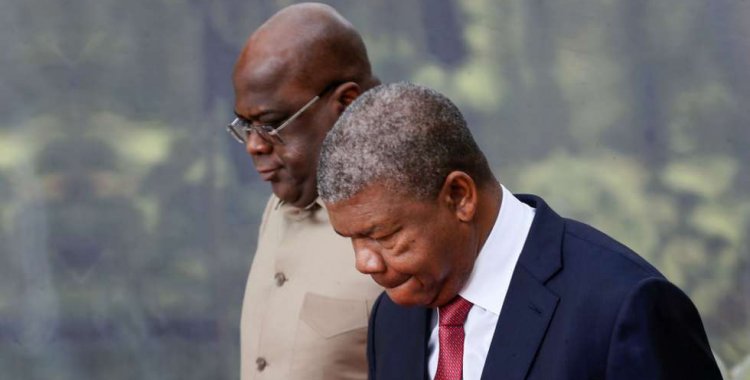"The Democratic-Congolese delegation is leaving Kinshasa for Luanda. We will respond to the invitation of the Angolan mediation," Tina Salama, spokesperson for the President of the Democratic Republic of Congo, Félix Tshisekedi, told AFP when asked about the announced absence of the M23.
The announcement of the cancellation of the participation of the M23 was made by the rebels' spokesman, Lawrence Kanyuka, via the social network X, in which he attributed to "international institutions" the responsibility for making the talks that were going to take place in Luanda impossible.
In the message, Kanyuka accused "certain international institutions" of sabotaging the peace efforts, following the sanctions imposed by the European Union.
The European Union (EU) adopted sanctions this Monday against a refinery based in Kigali and nine people linked to the recent offensives of the M23 rebel group in the east of the Democratic Republic of Congo.
The March 23 Movement (M23) had previously announced that it would send five delegates to Luanda to participate in dialogue with the government of the Democratic Republic of the Congo, in response to a request from the Angolan authorities.
This would be the first opportunity for direct negotiations between the M23 and the Democratic Congolese government, which Kinshasa had so far refused.
In Luanda, the Presidency issued a statement stating that "all the conditions" have been created for the start of direct negotiations between the two parties.
When asked about the recent announcement by the M23 that it would not participate in the talks due to sanctions imposed by the European Union on its members, an official source from the Presidency said he was unaware of the information.
"All the conditions are in place for the start of direct negotiations tomorrow [Tuesday], 18 March, as scheduled", reads a note from the press office of the President of the Republic, João Lourenço.
The press release states that the delegation from the Democratic Republic of the Congo is already in Luanda and that the arrival of the M23 delegation in the capital was expected this Monday.
The M23 – which, according to the DR Congo and countries such as the USA, Germany and France, is supported by Rwanda – controls the capitals of the provinces of North Kivu and South Kivu, which border Rwanda and are rich in minerals essential for the technology industry and the manufacture of mobile phones.
The number of deaths in the conflict in the capital of North Kivu, Goma, and its surroundings has exceeded 8500 since January, according to information provided by the Democratic-Congolese Minister of Public Health, Samuel Roger Kamba, at the end of February.
In that province, the armed activity of the M23 – a group made up mainly of Tutsis, which suffered the Rwandan genocide in 1994 – resumed in November 2021 with surprise attacks against the government army.
Since 1998, eastern DR Congo has been mired in conflict fuelled by rebel militias and the army, despite the presence of the UN peacekeeping mission (MONUSCO).







